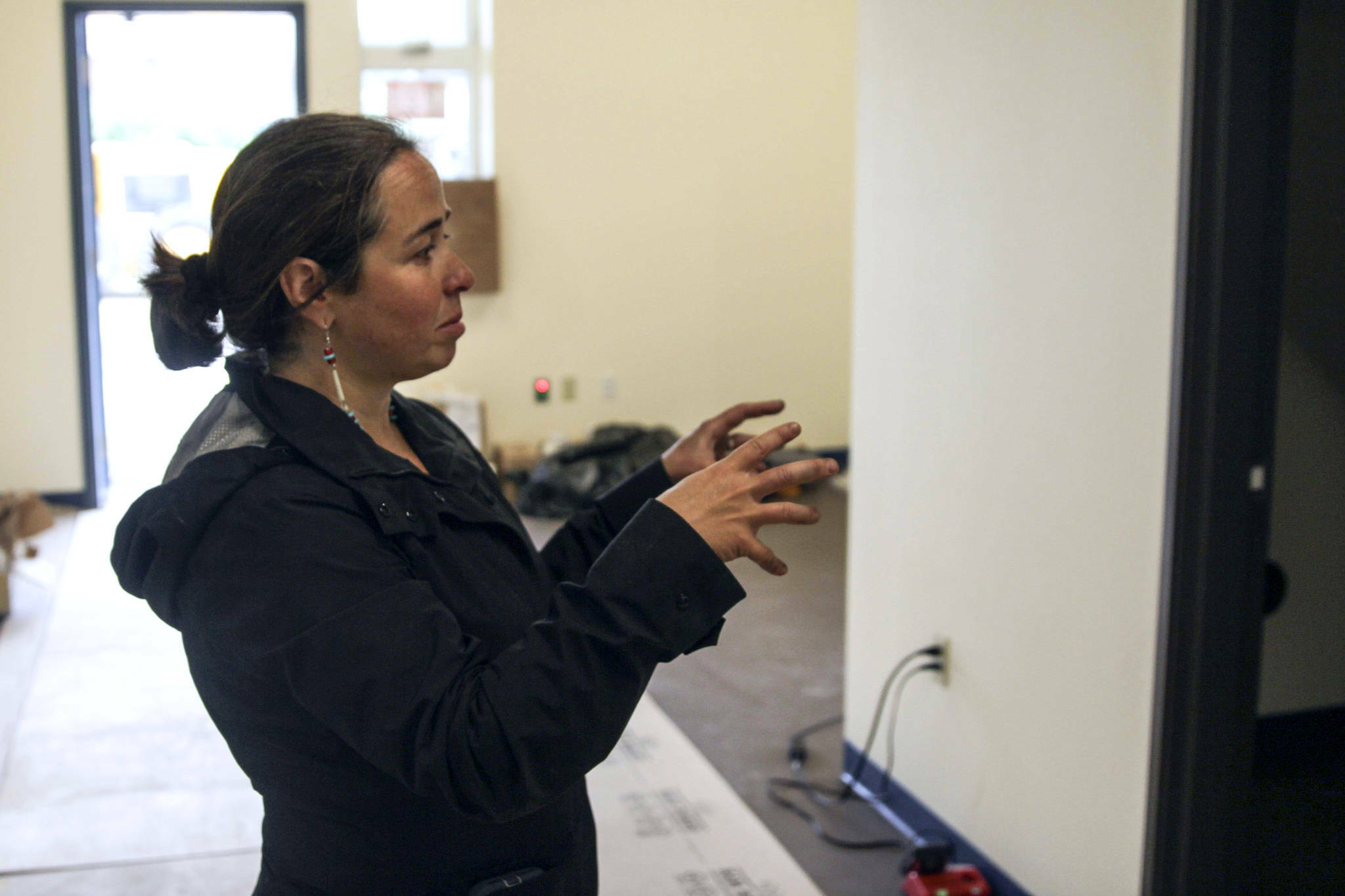Mariya Lovishchuk is stepping down as executive director of the organization that operates Glory Hall, saying Thursday she wants to transition to more focused work with economically disadvantaged people in the community while a fresh face takes over a director’s job that is much different than the one she started 15 years ago.
Lovishchuk has been the executive director of the Juneau Housing First Collaborative since 2009. During that period the organization has expanded beyond sheltering and feeding the homeless to providing nearly 100 current and planned permanent residential units, plus other services to people in need.
The permanent housing consisting of 64 units at the Forget-Me-Not-Manor (plus 28 more being built this year) that opened in 2017 and seven low-income housing units that opened this month in the Glory Hall’s former shelter building downtown were cited by Lovishchuk in an interview Thursday as a highlight of her time as executive director and the work she wants to continue.
“I definitely want to keep on working in the permanent supportive housing arena because I think it’s really important,” she said. “It really helps and there’s a critical shortage of that.”
Lovishchuk said she plans to remain at her current job until a successor is chosen and ready to take over. The deadline to apply for the executive director’s position is July 12.
“I don’t have like a drop-dead ‘I’m leaving this second’ date, because it’s an important job,” she said. “And I want to make sure that the transition is as smooth as possible, and that it has as little impact on our very important and critical operations.”
The Glory Hall’s downtown shelter opened in 1994 (then named the Glory Hole before the associated innuendo resulted in a change), with Lovishchuk serving as executive director there for a decade before the facility moved to its current location on Teal Street, where neighboring St. Vincent de Paul Juneau and the Teal Street Center also provide services to people in need. She said the duties were simpler and smaller in scope when she started as director.
“There was one paid staff who was the executive director, and then there was like a volunteer shelter manager and some cooks,” she said.
The Glory Hall’s new location is significantly larger with room for about 70 people rather than 50, Housing First now has about 35 employees, and the problems experienced by many on the streets are more severe.
“When I started the primary substance that folks were using was alcohol,” Lovishchuk said. “And now it’s meth and opioid derivatives. So I mean it’s just a much more complicated and different scene now.”
Furthermore, reports of illegal activity by people experiencing homelessness have been particularly prominent during the past year, with city leaders deciding earlier this year not to open a designated homeless campground for the first time in many years due to problems occurring at Mill Campground last year. That has resulted in “dispersed camping” around Juneau this summer, leading to officials at the Glory Hall and neighboring agencies asking the city for a protective zone due to threatening behavior from people without shelter.
Lovishchuk said it’s been difficult to watch some aspects of Juneau’s homeless situation worsen, but on balance she remains optimistic about the community’s ability to provide solutions.
“The opioid epidemic that we’re in and folks just constantly overdosing and coming back with Narcan, that is intense,” she said. “And just the general lack of affordable housing, that is pretty intense. But I do think that there are just a lot of bright spots that are really, really good for the spirit and very uplifting. Like, one, how we as a community come together here to get projects done. I think that’s unprecedented, just the collaboration between all of the social service agencies here in the municipality and in our tribal entities. I think that is so inspiring.”
There’s a similar mix of challenge and reward working with individuals needing assistance, Lovishchuk said. She said the advice she will give to her successor is “just listen, listen, listen” — and keep focusing on ways of providing permanent housing.
“It’s really interesting to just getting to know people of all socioeconomic backgrounds, and then having the privilege of hearing their stories and working with really inspiring people who are staff who are people of all ages…Sure there are some pretty depressing things, but it could be worse for one thing and I think the good in people and the good in our community, definitely outweighs that for me.”
Lovishchuk did get an extended break during her time as executive director when The Rasmuson Foundation agreed to provide support necessary to the Glory Hall so she could take a sabbatical of several months in 2022. In interviews upon her return she said she spent a lot of time with her family in Southeast Alaska and abroad.
“I went to New Zealand,” she said. “I got to hike a lot of mountains. I went kayaking and boating, and I read a lot of books. I ate really well and I slept and I did not work. It has been amazing.”
• Contact Mark Sabbatini at mark.sabbatini@juneauempire.com or (907) 957-2306.

